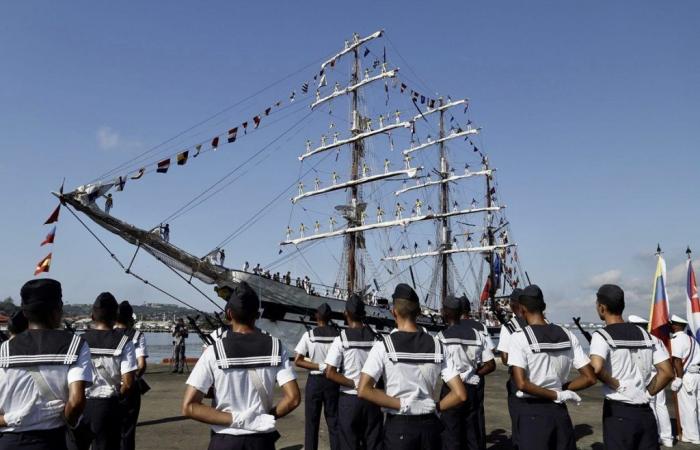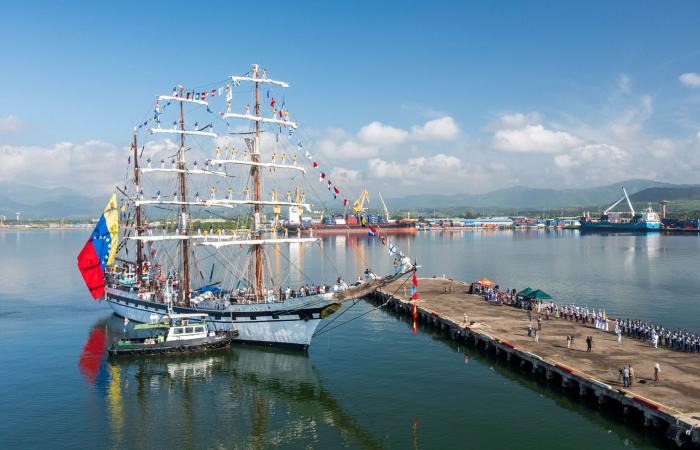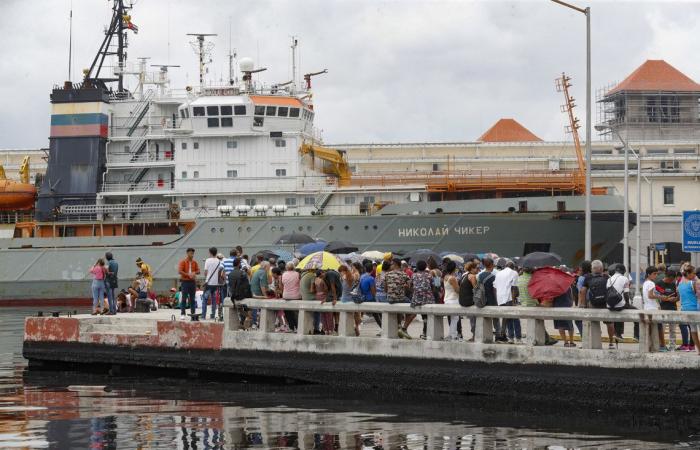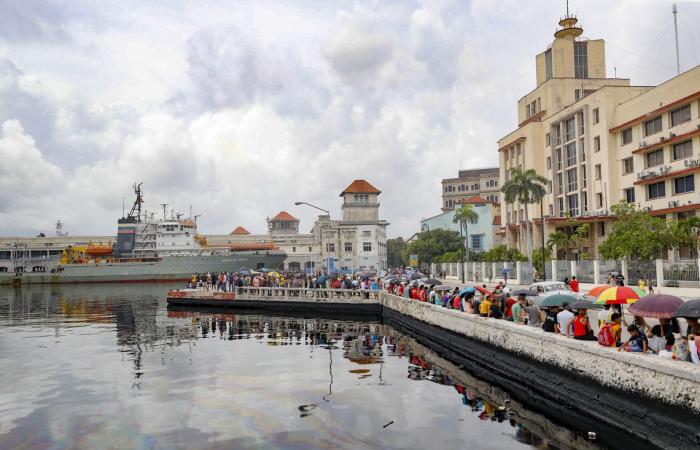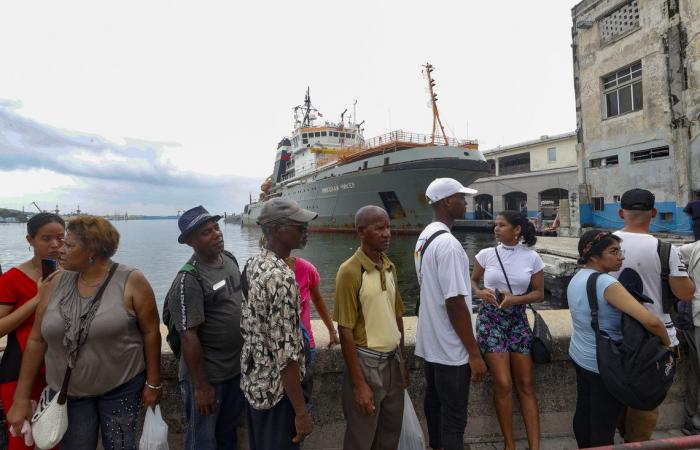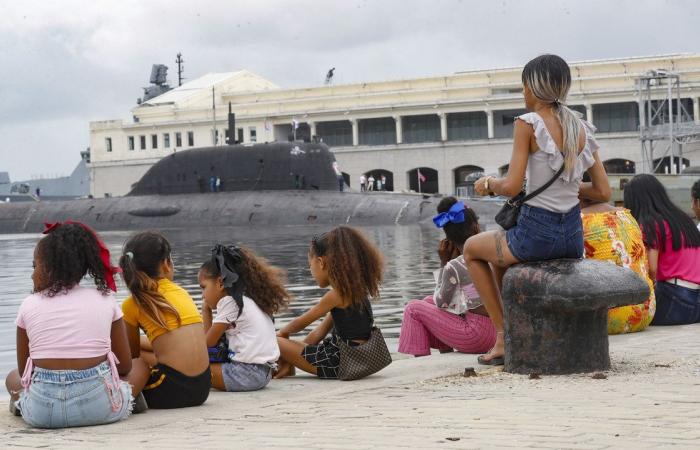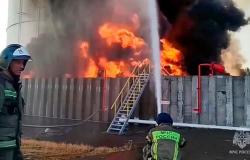The Training Ship “Simón Bolívar”, of the Venezuelan Navy, arrived this Saturday in Santiago de Cuba, as the Armed Forces of the island had announced in advance.
Its arrival in Cuba coincides with the presence of a Russian flotilla and a Canadian patrol ship in Havana Bay, and a US submarine in Guantánamo, at an unusual moment of convergence of foreign military vessels in the country. Caribbean.
The Simón Bolívar arrived in Santiago as part of its training course abroad and upon entering the bay it was greeted with 21 cannon salutes from the Castillo del Morro San Pedro de la Roca.
Furthermore, already at the dock he was received by civil and military authorities of Cuba, and by the diplomatic representatives of Venezuela on the island, as well as artists from Santiago, reports the Cuban News Agency (ACN).
Known as the “Ambassador without borders”, the Venezuelan ship arrived in Santiago with 173 crew members on board, including officers, sergeants, sailors and cadets. Her departure is scheduled for Wednesday, June 19, heading to Santa Marta, Colombia.
On its fifth visit to that Cuban city, the ship’s crew will develop “an extensive program of activities that includes visits to schools, tours of the city and exchanges with political and government authorities and the people in general,” reports the official office.
With a length of 82.4 meters, a beam of 10.4 and a draft of 4.4, the Simón Bolívar can be visited by the population from this Sunday until next Tuesday, from 10:00 in the morning until 6:00 in the afternoon.
Queues in Havana for the Russian frigate
At the same time, this Saturday the open visits of the Cuban population to the Russian frigate “Almirante Gorshkov”, anchored in the port of Havana, concluded.
According to several press reports, Cubans stood in long lines to visit the ship, one of the stars of the Russian naval detachment that arrived in the Cuban capital on June 13.
Despite the rains that have hit the island, and in particular Havana, in recent days, hundreds of people waited for hours to board the ship and also see the Kazan nuclear submarine up close, whose presence on the island has generated controversy and expectation.
Visits were possible between noon and 4:00 in the afternoon, according to what the Russian Embassy reported on its networks.
“It’s quite exciting. “It is a unique opportunity for many people and it is something super nice,” he told the agency. EFE a mother who queued for three hours with her daughter to visit the frigate.
The Spanish media and other publications report that the queues have not stopped since Thursday. Many went with umbrellas and parasols, and remained even in the rain, while others took refuge in nearby doorways when the downpours began.

People wait their turn to visit a Russian war frigate in Havana, on June 15, 2024. Photo: Yander Zamora / EFE.

People wait their turn to visit a Russian war frigate in Havana, on June 15, 2024. Photo: Yander Zamora / EFE.

People wait their turn to visit a Russian war frigate in Havana, on June 15, 2024. Photo: Yander Zamora / EFE.

People wait their turn to visit a Russian war frigate in Havana, on June 15, 2024. In front of them is the Russian nuclear submarine Kazan. Photo: Yander Zamora / EFE.
The Russian flotilla will depart this Monday from Havana and is expected to also call at Venezuelan ports and carry out maneuvers in international waters of the Caribbean Sea.
The United States government assured that it was not concerned about the visit of the Russian squad, which it said it did not consider a threat. However, coincidentally, a US submarine arrived at the Guantánamo Naval Base this week and, according to reports, the Russian ships were followed in the distance by US vessels.
The Cuban Government confirmed having been informed in advance by Washington about the arrival of the submarine, but said it did not like its presence in Guantanamo.
According to the island’s Vice Minister of Foreign Affairs, Carlos Fernández de Cossío, visits by foreign naval forces to Cuba—such as those of the Russian flotilla and the Canadian patrol vessel—result “from an invitation and this is not the case.” .

